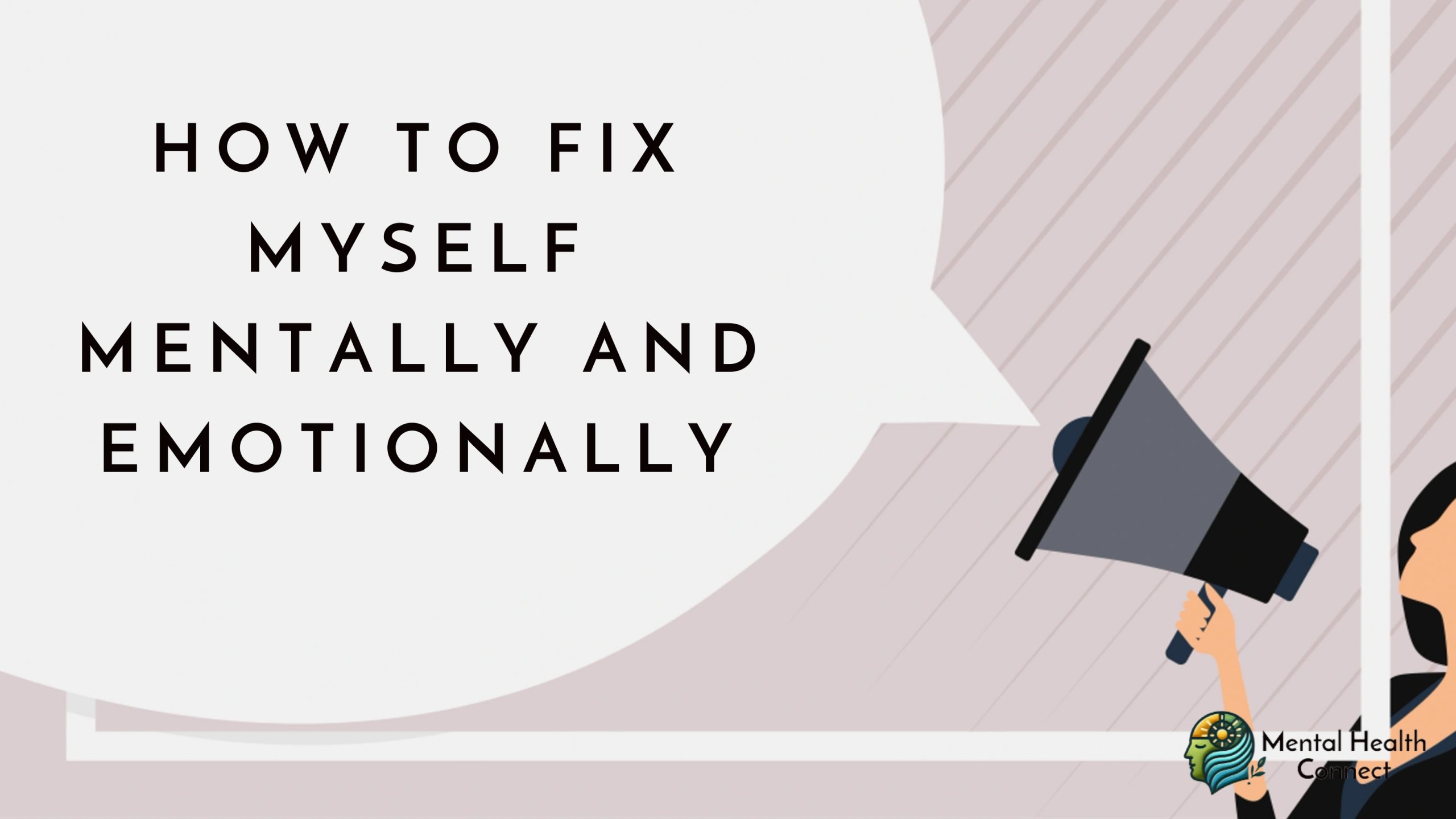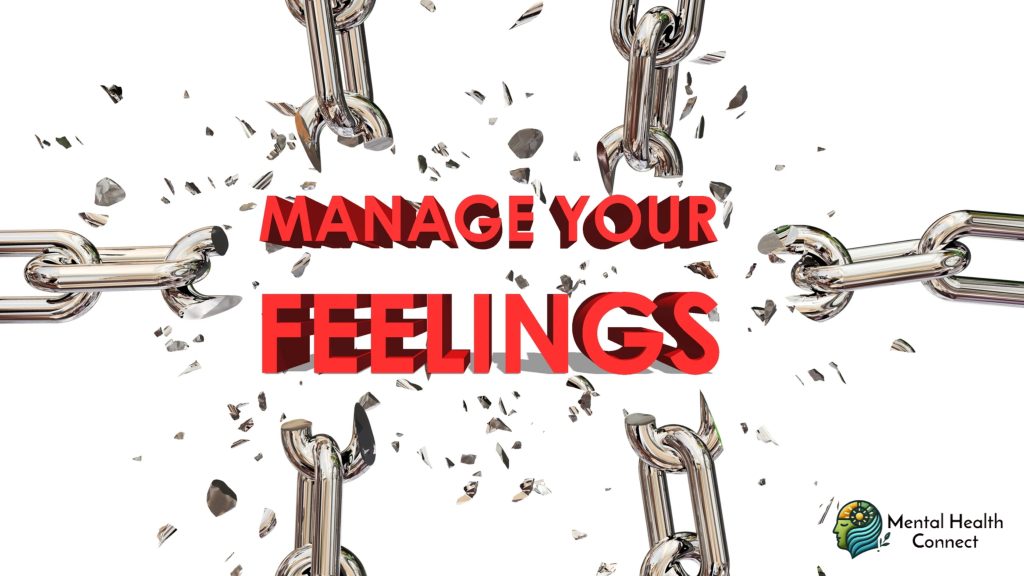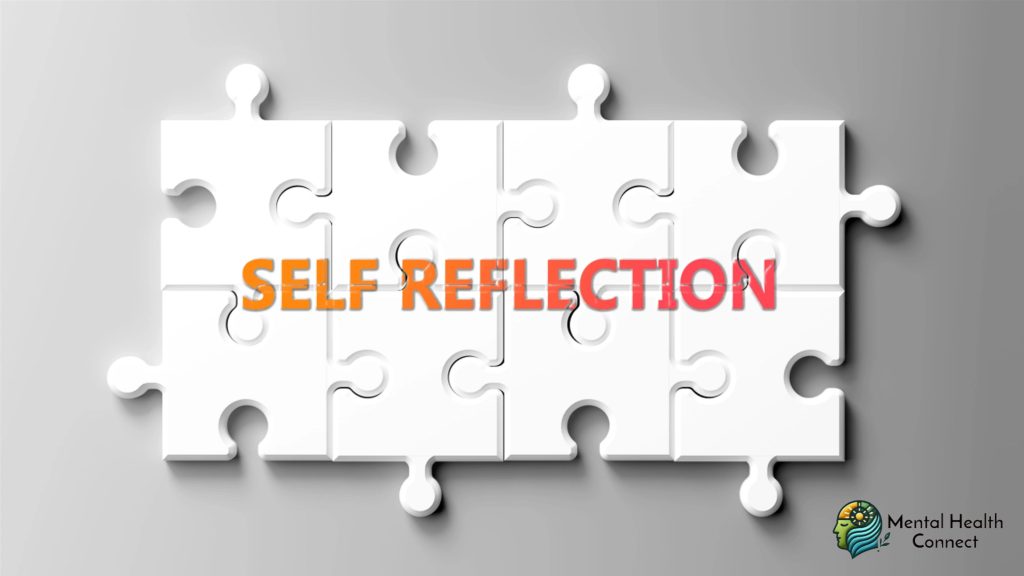How to Fix Myself Mentally and Emotionally: A Complete Guide to Mental and Emotional Well-Being

Feeling overwhelmed, stressed, or emotionally drained? You’re not alone. Many people struggle with mental and emotional challenges at different points in life. If you’ve ever wondered, “How to fix myself mentally and emotionally? this guide is for you. Improving your mental and emotional health requires self-awareness, strategies for resilience, and practical self-care techniques. In this article, we’ll explore how you can regain control, heal, and foster long-term emotional well-being.
What is Mental and Emotional Well-Being?

Mental and emotional well-being refers to your ability to manage emotions, cope with stress, maintain relationships, and make healthy life choices. It impacts how you think, feel, and behave in daily life. Good mental health doesn’t mean always being happy it means being able to navigate life’s ups and downs effectively.
Examples of Emotional and Mental Well-Being:
- Feeling in control of your emotions
- Maintaining healthy relationships
- Coping with stress in a positive way
- Having a strong sense of self-worth
- Being able to manage anxiety and depressive thoughts
Why is Mental and Emotional Well-Being Important?
Taking care of your emotional and mental health is crucial for a balanced, fulfilling life. Here’s why:
- Improves Relationships: When you’re emotionally stable, you can form deeper and healthier connections with others.
- Enhances Decision-Making: A clear mind helps in making better life choices.
- Boosts Resilience: The ability to bounce back from challenges is essential for long-term success.
- Reduces Stress and Anxiety: Effective emotional regulation minimizes the impact of stress on your body and mind.
- Increases Productivity: A stable emotional state helps in focusing on goals and improving overall efficiency.
How to Fix Yourself Mentally and Emotionally: A Step-by-Step Guide

1. Identify the Root Causes of Your Struggles
- Are you feeling overwhelmed due to work, relationships, or unresolved trauma?
- Keep a journal to track emotions and triggers.
2. Practice Mindfulness and Self-Reflection
- Spend time alone to reflect on your thoughts and emotions.
3. Seek Professional Help When Needed
- Therapists and counselors can offer guidance and coping mechanisms.
- Consider online therapy options if accessibility is an issue.
4. Develop Healthy Coping Strategies
- Replace unhealthy habits (e.g., overeating, excessive screen time) with positive activities like reading or exercising.
- Practice stress-relief techniques like journaling or listening to calming music.
5. Surround Yourself with Supportive People
- Distance yourself from toxic relationships.
6. Prioritize Self-Care

- Get enough sleep (7-9 hours per night).
- Eat a nutritious diet and stay hydrated.
- Engage in physical activities to release endorphins.
7. Develop a Growth Mindset
- View challenges as opportunities to grow.
- Celebrate small wins and progress over time.
8. Practice Gratitude and Positive Thinking
- Keep a gratitude journal.
- Focus on positive affirmations to rewire negative thinking patterns.
Best Practices for Mental and Emotional Wellness
- Limit Social Media Use: Constant comparison can harm self-esteem.
- Engage in Hobbies: Creative activities help reduce stress and improve mental health.
- Stay Connected: Strong social support plays a huge role in emotional well-being.
- Challenge Negative Thoughts: Use cognitive behavioral therapy (CBT) techniques to reframe negative thinking patterns.
Common Mistakes & How to Avoid Them
Mistake 1: Ignoring Mental Health Issues
Solution: Acknowledge your struggles and seek professional help if needed.
Mistake 2: Suppressing Emotions
Solution: Express your feelings through journaling, therapy, or talking to a trusted friend.
Mistake 3: Relying on Quick Fixes
Solution: Focus on long-term solutions like therapy, mindfulness, and self-care routines.
Mistake 4: Isolating Yourself
Solution: Reach out for support, even when it’s difficult.
Mistake 5: Comparing Yourself to Others
Solution: Practice self-acceptance and focus on your own growth journey.
Future Trends & Predictions in Mental Health
- Increased Use of AI in Therapy: Digital therapy platforms are becoming more advanced.
- Holistic Approaches Gaining Popularity: More people are turning to integrative wellness practices like meditation and energy healing.
- Greater Awareness of Mental Health Issues: More organizations are prioritizing mental health initiatives.
- Personalized Mental Health Plans: Custom wellness strategies based on genetics and lifestyle factors.
- Emotional Self-Care
- Practicing habits that nurture your emotional well-being, such as setting boundaries, journaling, and meditation.
- How to Improve Emotional Health
- Steps include mindfulness, self-reflection, therapy, and positive social interactions.
- Emotional Wellness
- The ability to manage emotions, cope with stress, and maintain a balanced mindset.
- Mental Wellness
- Refers to a state of well-being where you can handle daily stressors, work productively, and maintain healthy relationships.
- By focusing on these areas, you can build a stronger foundation for long-term mental and emotional health
- By focusing on these areas, you can build a stronger foundation for long-term mental and emotional health
- Fixing yourself mentally and emotionally is a journey that requires patience, self-awareness, and proactive steps. By implementing these strategies, you can cultivate a strong mindset, healthier emotions, and improved overall well-being. Whether it’s through mindfulness, therapy, or simple self-care habits, prioritizing your mental and emotional health is essential for a fulfilling life.
FAQs
1. How do I start improving my mental health?
Begin by identifying stressors, practicing mindfulness, and seeking professional support if needed.
2. What are some self-care activities for emotional well-being?
Journaling, exercise, meditation, spending time in nature, and engaging in hobbies.
3. How can I stop negative thinking patterns?
Use CBT techniques, challenge irrational thoughts, and replace them with positive affirmations.
4. What role does diet play in mental health?
A balanced diet with proper nutrients supports brain function and emotional stability.
5. How can I build resilience during tough times?
Practice gratitude, develop coping mechanisms, and focus on personal growth.
6. Can therapy help even if I’m not diagnosed with a mental illness?
Yes, therapy helps with personal development, emotional regulation, and stress management.
7. What are signs I need professional help?
If emotional distress affects your daily life, relationships, or work, professional guidance is recommended.
-
 How Lifestyle Changes Can Improve Sexual HealthApril 3, 2025
How Lifestyle Changes Can Improve Sexual HealthApril 3, 2025 -
 Treatment Options for Erectile DysfunctionApril 3, 2025
Treatment Options for Erectile DysfunctionApril 3, 2025

Leave a Reply